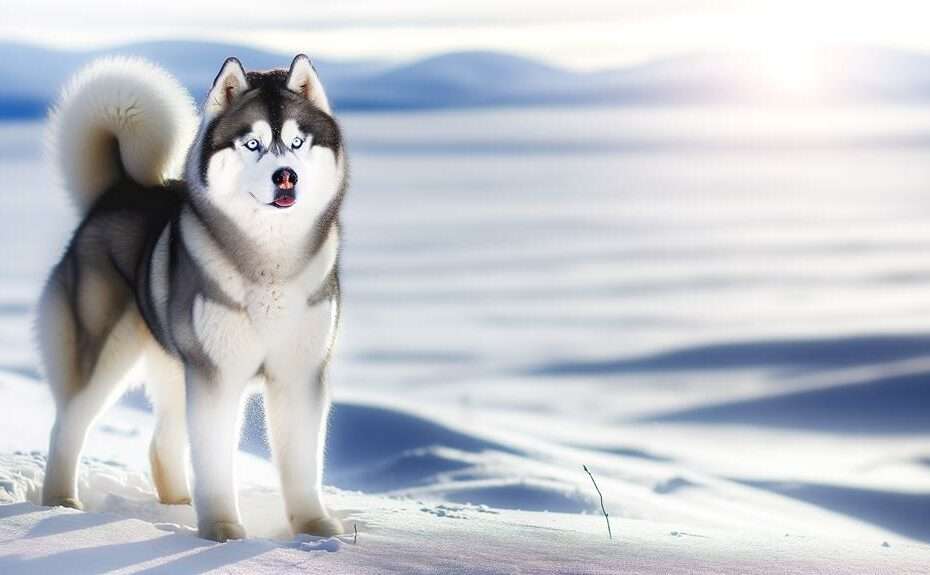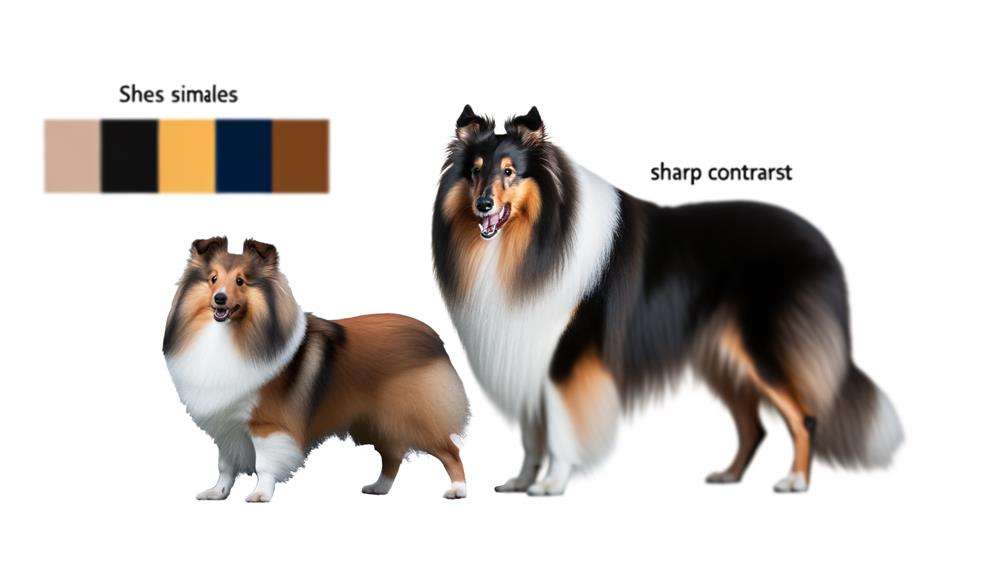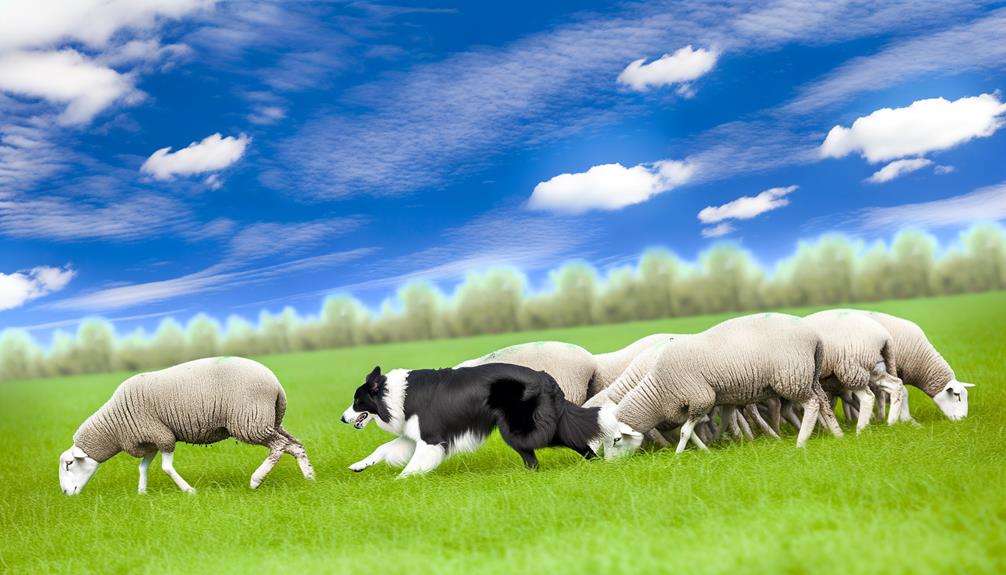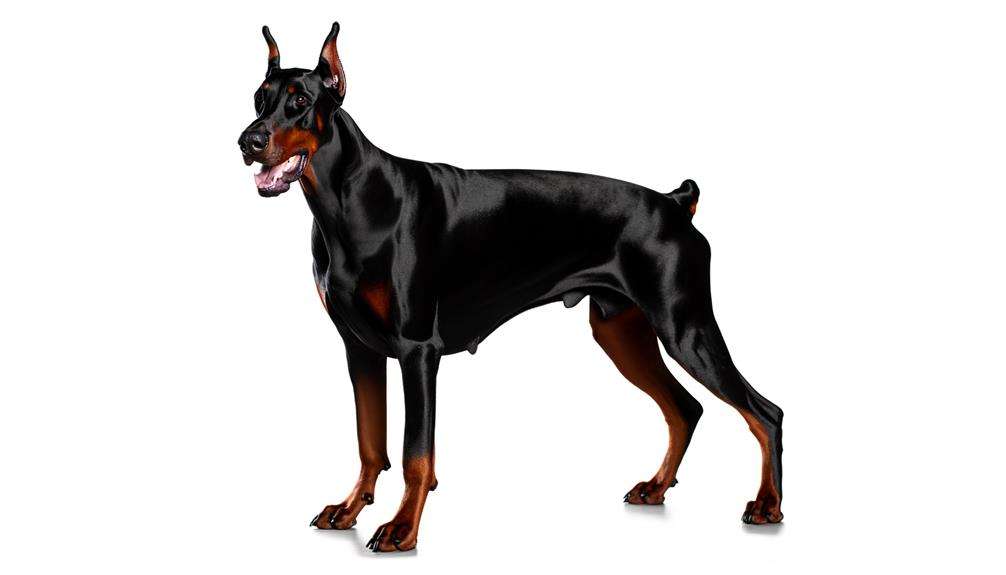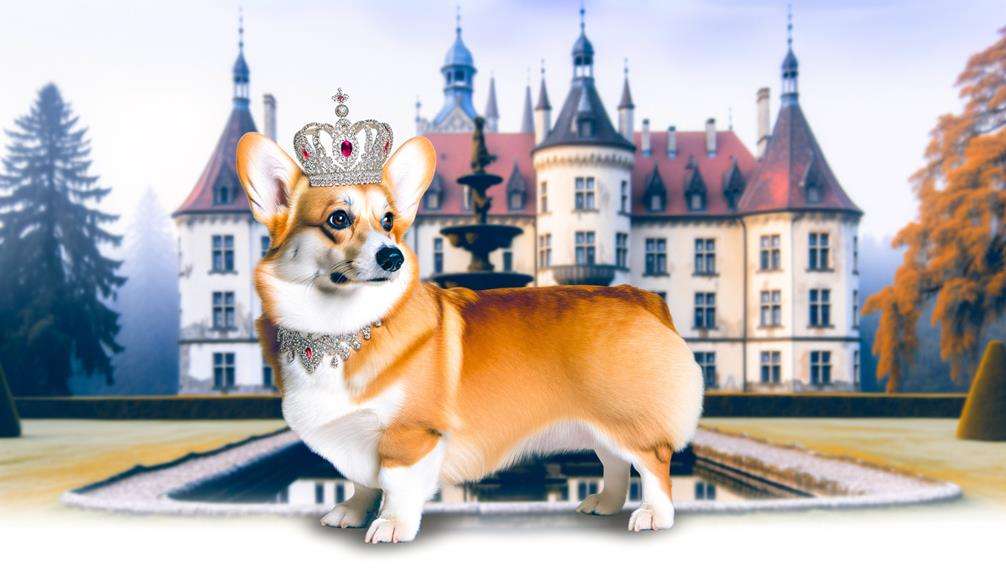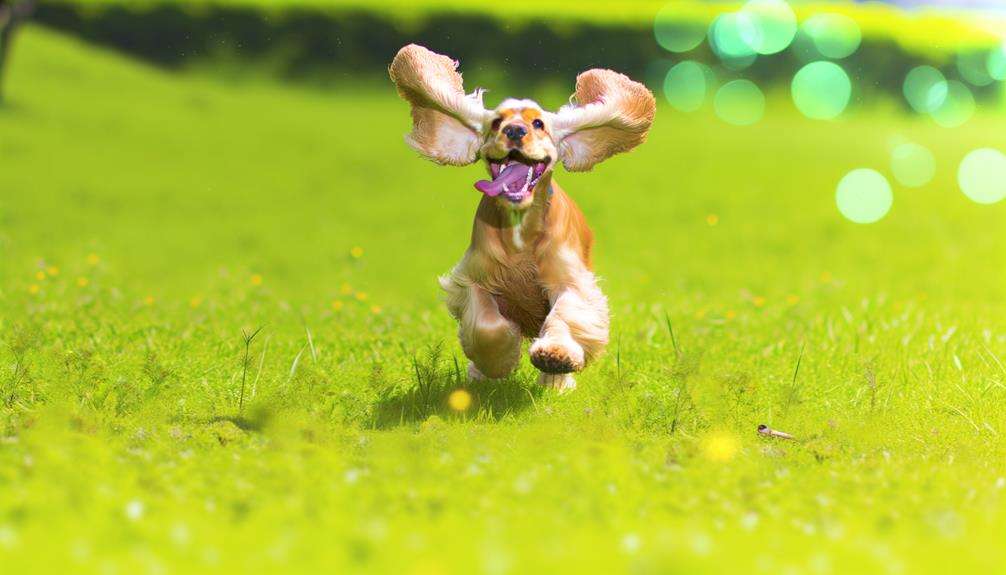Imagine a Siberian Husky as a lone wolf, navigating the vast snowy expanse with determination and grace. As you explore the pages of this book, you will uncover the secrets behind this breed's captivating allure and the deep-seated bond they share with their Arctic ancestors.
From their captivating howls echoing through the winter night to their unparalleled endurance in harsh conditions, the Siberian Husky embodies a spirit that beckons you to uncover the mysteries of their wild nature.
Key Takeaways
- Siberian Huskies are descendants of Arctic nomads, bred for endurance and strength.
- Their double-layered fur coats provide insulation and protection in harsh winter conditions.
- Known for their energetic and playful nature, Huskies require ample exercise and mental stimulation.
- Proper training, care, nutrition, and exercise are essential for nurturing the wild spirit of a Husky.
Siberian Husky Origins
The origins of the Siberian Husky can be traced back to the Chukchi people of Siberia, who selectively bred these dogs as vital companions for their nomadic lifestyle in the harsh Arctic environment. The Chukchi people relied heavily on these sturdy and adaptable dogs for transportation and survival in the unforgiving terrain of Siberia. The Siberian Husky's ability to endure extreme cold temperatures, coupled with their strength and endurance, made them indispensable to the Chukchi way of life. These dogs weren't merely pets but integral members of the tribe, contributing to the success of hunting and travel in the challenging Arctic conditions.
The bond between the Chukchi people and the Siberian Husky was profound, with both parties relying on each other for sustenance and companionship. The dogs were bred to be hardworking and resilient, traits that are still evident in the modern-day Siberian Husky. This deep-rooted history of cooperation and mutual benefit between the Chukchi people and the Siberian Husky laid the foundation for the breed's enduring legacy as a winter warrior.
Physical Characteristics
Siberian Huskies boast a double-layered fur coat that provides exceptional insulation against cold climates, allowing them to withstand harsh winter conditions.
This unique feature enables them to maintain their energetic endurance traits, as they're built for running long distances in challenging environments.
The physical characteristics of their coat play a crucial role in their ability to thrive in cold regions, showcasing their adaptation to their ancestral Arctic roots.
Fur Coat Insulation
With its double-layered fur coat, the Siberian Husky efficiently maintains its body temperature in cold environments, showcasing remarkable insulation capabilities. This breed's dense undercoat and longer guard hairs work together to provide exceptional protection against harsh winter conditions, enabling them to thrive in chilly climates.
The seasonal shedding process of their fur coat helps Siberian Huskies adapt to changing weather patterns, ensuring optimal insulation efficiency throughout the year. Additionally, their self-cleaning coat not only sheds dirt and debris effortlessly but also aids in preserving their insulating properties.
The varied coat colors, such as black, gray, red, and agouti, contribute to their adaptability and unique appearance, making Siberian Huskies stand out in different environments.
Energetic Endurance Traits
Exhibiting remarkable physical prowess and enduring stamina, the Siberian Husky distinguishes itself as a breed renowned for its energetic traits. Their Husky energy levels are unmatched, making them ideal companions for active individuals seeking a tireless partner.
Endurance training is crucial for harnessing their athletic abilities, as these dogs excel in activities such as sledding and agility courses. Their robust build and efficient respiratory systems enable them to endure long journeys without tiring quickly.
Siberian Huskies' innate drive to run and explore stems from their history as working dogs in harsh Arctic conditions. Their passion for physical challenges and exploration is a testament to their enduring spirit and remarkable athleticism.
Temperament and Behavior
To truly understand the Siberian Husky, it's essential to delve into its distinctive temperament and behavior traits. Huskies, known for their friendly and sociable nature, thrive on socialization techniques that help them become great family pets. However, their high prey drive and strong hunting instincts can lead to chasing small animals, requiring behavior modification and consistent training to manage this trait. These independent thinkers may exhibit stubborn behavior, presenting training challenges that necessitate clear obedience commands to establish boundaries effectively.
Moreover, the Siberian Husky's energetic and playful demeanor demands regular exercise to prevent boredom and potential destructive behavior. Their vocal nature, including howling reminiscent of their wolf ancestors, adds to their unique behavioral quirks and communication cues. Understanding and addressing these aspects of a Husky's temperament are crucial for fostering a harmonious relationship and ensuring their well-being.
Husky Training Tips
Understanding the Siberian Husky's temperament and behavior lays a solid foundation for effective training methods that cater to their unique traits and needs. When it comes to training your Husky, consider the following tips:
- Training Techniques: Utilize positive reinforcement techniques such as treats and praise to motivate and train your Siberian Husky effectively.
- Behavioral Challenges: Consistency in commands and routines is key to establishing good behavior and obedience in your Husky.
- Positive Reinforcement: Incorporate mental stimulation activities like puzzle toys and obedience training to keep your Husky engaged and prevent boredom.
- Firm but Gentle Approach: Huskies respond well to a firm but gentle approach, avoiding harsh punishments that can harm the bond between you and your dog.
- Professional Help: Seek professional training help if needed, especially for complex behaviors or challenges in Husky training. Remember, a well-trained Husky is a happy and well-adjusted companion.
Husky Health and Care
To keep your Husky healthy, remember to provide sufficient exercise each day, ensure proper grooming practices, and schedule regular vet check-ups.
A balanced diet and dental care are vital components of maintaining your Husky's overall well-being.
Diet and Exercise
For Siberian Huskies, maintaining a balanced diet rich in protein is crucial for sustaining their energy levels and muscle mass. Providing protein-packed meals is essential for their overall health. Additionally, engaging in energy-boosting exercises is vital to keep Huskies fit and mentally stimulated.
- Protein Packed Meals: Ensure your Husky's diet is high in protein to support their energy and muscle development.
- Regular Exercise: Huskies need daily physical activities to prevent obesity and maintain their mental well-being.
- Portion Control: Overfeeding can lead to health issues like obesity and joint problems, so monitor their food intake.
- Hydration Importance: Always have fresh water available for your Husky, especially during physical activities.
- Veterinary Guidance: Consult a vet for personalized diet and exercise recommendations tailored to your Husky's specific needs.
Grooming Tips
Maintaining a Siberian Husky's well-being includes regular grooming practices to uphold the health and care of their distinctive double coat. To tackle shedding, brushing the coat weekly is vital for preventing mats and minimizing loose fur, especially during seasonal changes. When bathing your Husky, do so sparingly to preserve their natural oils, typically every 2-3 months.
Although Huskies are self-cleaning, grooming remains crucial for their overall health. Nail trims, ear cleaning, and dental care are also grooming essentials to ensure their comfort. By staying on top of coat maintenance and incorporating these grooming practices, you can help your Husky stay healthy and happy, showcasing their wild spirit while embracing the duties of a winter warrior.
Preventive Healthcare
Regular veterinary check-ups play a crucial role in maintaining the health and well-being of your Siberian Husky, ensuring they receive necessary vaccinations, parasite control, and overall wellness assessments.
Key Points:
- Preventive care importance: Follow a strict vaccination schedule to protect against common diseases.
- Parasite prevention: Utilize effective deworming methods to keep your husky healthy.
- Wellness exams: Regular check-ups aid in early disease detection and prompt treatment.
- Balanced diet: Tailor your husky's food intake to their specific needs for optimal health.
- Exercise and stimulation: Engage your husky in physical activities and mental challenges to prevent behavioral issues and promote happiness.
Husky Nutrition Essentials
Have you ever considered what elements make up a well-balanced diet for your Siberian Husky to support their active lifestyle effectively? Nutritional balance is key, with a focus on high-quality protein, healthy fats, and essential nutrients. Huskies thrive on animal protein sources like chicken, beef, and fish to maintain muscle mass and energy levels. Monitoring calorie intake is crucial to prevent obesity and related health issues, as Huskies are prone to weight gain if overfed.
Hydration is essential, especially during hot weather or intense physical activities, to regulate body temperature and prevent dehydration.
Consulting with a veterinarian is important to determine your Husky's specific nutritional needs based on factors like age, size, activity level, and any health conditions they may have. By ensuring a diet rich in protein, monitoring calories, and maintaining proper hydration, you can support your Siberian Husky's overall health and well-being effectively.
Exercise Needs of a Husky
Huskies are known for their high energy levels and need for physical activity to maintain their well-being. Daily exercise of 30-60 minutes is crucial to prevent behavior issues such as excessive barking and digging.
Engaging in activities like running, hiking, and interactive games can help keep your Husky happy and mentally stimulated.
Activity Requirements for Huskies
To maintain the Siberian Husky's well-being, ensuring they receive sufficient daily exercise is crucial for their physical and mental health. Huskies require at least 30-60 minutes of vigorous exercise each day to stay happy and healthy. They've high energy levels and enjoy activities like running, hiking, and playing fetch. Lack of proper exercise can result in behavioral issues such as excessive barking or digging. Engaging in interactive play sessions and mental stimulation games can help meet their exercise needs effectively. It's essential to provide them with the necessary physical activities to prevent obesity and maintain their overall well-being.
- Indoor entertainment
- Mental stimulation
- Exercise alternatives
- Proper playtime
- Avoidance of sedentary lifestyle
Playtime Importance for Huskies
Exploring the importance of playtime for Siberian Huskies reveals crucial insights into meeting their exercise needs and ensuring their overall well-being. Playtime benefits Huskies by providing essential energy release and preventing behavioral issues. Engaging in interactive games, running, walking, and hiking not only helps maintain physical health but also contributes to their mental stimulation.
Through regular exercise routines and playtime engagement, you can keep your Husky happy and mentally sharp. Neglecting their exercise requirements may lead to boredom and restlessness, potentially resulting in destructive behavior. Therefore, incorporating sufficient playtime and exercise is vital for the behavioral wellness of Siberian Huskies, promoting a balanced and fulfilled life for your furry companion.
Husky Grooming Guide
Regular grooming plays a crucial role in maintaining the Siberian Husky's healthy coat and skin. Brushing their double coat not only reduces shedding but also prevents matting, keeping their fur in top condition.
Bathing occasionally with dog-friendly shampoos helps keep your Husky clean without stripping their coat of natural oils. Trimming their nails is essential to prevent overgrowth, which can lead to discomfort and potential health issues.
Checking and cleaning their ears regularly is vital for preventing infections and maintaining overall ear health. When it comes to grooming tools, opt for a slicker brush to remove loose fur effectively and a nail clipper designed for dogs to trim their nails safely.
Husky in Winter: Survival Tips
When preparing your Siberian Husky for the winter season, focus on essential survival tips to ensure their well-being in cold weather. Winter coat maintenance is crucial for your husky to stay warm and protected from the harsh elements. Regular grooming helps preserve their double-layered coat's insulating properties, keeping them comfortable in chilly temperatures. Additionally, ensure your husky stays hydrated in cold weather, as they can easily become dehydrated even when it's cold outside. Provide access to fresh water at all times and consider warming it up a bit to encourage drinking.
Snowy terrain exercise is essential to keep your husky healthy and active during the winter months. Huskies are energetic dogs that need regular exercise, even in the snow. Take them for walks or runs in the snow to engage their natural instincts and keep them mentally stimulated. Remember to monitor their paws for any signs of irritation from the cold and snow. By following these survival tips, you can help your husky thrive in the winter season.
Husky Myth Busting
Debunking common misconceptions, Siberian Huskies don't have wolf ancestry in their lineage. Many people believe that these beautiful creatures are closely related to wolves due to their appearance and behavior, but this is simply not true. To shed light on the truth about Siberian Huskies, it's important to delve into the myths surrounding them:
- Misconception 1: Siberian Huskies are part-wolf.
- Misconception 2: Their wild nature makes them difficult to train.
- Misconception 3: They're inherently aggressive due to their prey drive.
- Misconception 4: Huskies can't be trusted around small animals or children.
- Misconception 5: Their howling is a sign of wolf ancestry.
Understanding husky behavior reveals that these myths are far from reality. Huskies are affectionate, intelligent, and energetic companions, distinct from their distant wolf relatives. By debunking husky misconceptions, we can appreciate these magnificent creatures for who they truly are.
Frequently Asked Questions
Is It OK to Leave My Husky Outside in the Winter?
Leaving your Husky outside in winter requires careful consideration. Provide outdoor shelters, monitor exercise needs, and maintain their coat. Regular checks and a warm dog house are essential. Prioritize their well-being and consult a vet for guidance.
Why Siberian Huskies Are so Special?
Siberian Huskies are special due to their unique temperament, intelligence, and socialization skills. Their friendly nature, adaptability, and striking physical features make them exceptional companions, blending a wild spirit with a loving heart.
What Are 3 Interesting Facts About Huskies?
Curious about huskies? They boast a rich husky history, bust breeding myths, and flaunt Arctic adaptations. Their double coat keeps them cozy, howls echo for miles, and their energy demands active playtime. Embrace the wild spirit!
What Is the Lore of Siberian Huskies?
The lore of Siberian Huskies is rich, steeped in origin tales, mythical connections, and cultural symbolism. These stories weave through time, highlighting the breed's deep ties to the Arctic and its enduring spirit.
Conclusion
As you reflect on the untamed spirit of the Siberian Husky, you realize they're like winter warriors, fierce and resilient. Their loyalty and wild instincts are as captivating as a snow-capped mountain peak, drawing you in with their unique charm and beauty.
Embrace the husky's adventurous nature and deep connection to their roots, for they're truly a breed like no other in the canine world.
